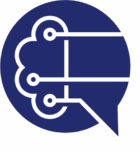Please be aware that the following content was generated using Artificial Intelligence (AI).
In today’s fast-paced corporate environment, ensuring psychological safety within the workplace has become more crucial than ever. Psychological safety refers to an environment where employees feel secure to express their thoughts, share ideas, and even admit mistakes without fear of negative consequences. This sense of safety not only fosters a culture of innovation but also plays a vital role in overall workplace well-being. Enter AI-driven coaching, a transformative approach that holds the potential to create and enhance this safe space for all employees.
AI-driven coaching is at the forefront of modern workplace solutions, effectively bridging the gap between traditional coaching and the scale that organisations often require. Unlike human coaching, which can sometimes be hindered by biases or inconsistencies, AI coaching technology offers a judgment-free zone. This non-directive approach encourages employees to explore their thoughts and feelings openly, empowering them to define their own goals and actions. In doing so, it cultivates an atmosphere of trust and risk-free exploration, integral components of psychological safety.
Imagine an employee, Sarah, who has always struggled with imposter syndrome. In a typical office setting, she might hesitate to voice her concerns during team meetings, fearing judgement from her peers. However, with AI-driven coaching, Sarah can engage in confidential conversations where she can candidly express her fears and aspirations. The AI listens, understands her context—such as her company’s values and strategic goals—and helps her to unpack these feelings, guiding her towards actionable steps without judgement. This is the essence of psychological safety; the assurance that she can explore her vulnerabilities and ambitions in a supportive environment.
AIcoach.chat exemplifies how this can be achieved at scale. The platform delivers customised non-directive coaching conversations suited to an organisation’s specific ethos and objectives. This tailored approach means that coaching is not just a generic tool, but a finely-tuned solution that resonates with employees on a personal and organizational level. When employees know that their conversation is aligned with their company’s values and strategic objectives, they are more likely to feel understood and valued, which further enhances psychological safety.
Moreover, the anonymity of AI coaching can alleviate the fear of judgement that often accompanies human interactions. Employees can share their thoughts and experiences freely, knowing that their conversations are confidential and not tied to their identities. This is especially important in workplaces where hierarchical structures may discourage open communication. By removing the barrier of personal exposure, AI coaching can empower employees to share honestly, explore their challenges, and collaborate more effectively.
Another vital aspect contributing to workplace well-being is the ability of AI-driven coaching to provide real-time feedback without the waiting time typically associated with traditional coaching. Employees can instantly assess their thoughts and feelings, leading to immediate action plans tailored to their discoveries. Being able to reflect and act swiftly promotes a culture of continuous learning and adaptation, essential for psychological safety.
It is also worth noting that psychological safety is not solely about preventing harm; it is also about fostering growth. By using AI coaching, organisations can encourage a proactive approach to mental health and well-being that enhances employee resilience. When employees feel safe to experiment and learn from their experiences, they are likely to take calculated risks that can lead to innovation and positive change within the organisation.
Of course, despite the myriad benefits, there may still be hesitations surrounding the adoption of AI in the coaching realm. Concerns about the quality of AI interactions threatening the human touch are valid. However, it’s essential to focus on how AI does not aim to replace human coaches; instead, it seeks to augment and enhance the coaching experience. With a cost-effective solution like AI coaching, companies can invest in comprehensive coaching initiatives, ensuring that many employees have access to the support they need, all while measuring engagement and progress more effectively than traditional surveys.
In a world that is increasingly data-driven, incorporating AI into coaching can provide invaluable insights into team dynamics, common challenges, and areas for improvement. By analysing aggregated data from coaching conversations, organisations can identify trends and address underlying issues, proactively building a safer and more supportive workplace environment. Enhanced psychological safety ultimately contributes to higher employee satisfaction and productivity, creating a virtuous cycle of well-being.
As we move forward in this tech-savvy age, organisations must embrace innovative solutions that prioritise the mental well-being of their employees. AI-driven coaching not only provides a means to introduce a culture of safety and support but also empowers individuals to take charge of their own development journeys. With AI taking on the heavy lifting, human coaches can focus on deeper, more impactful conversations that require a personal touch.
If you’re curious about how AI can create a safer workplace and enhance psychological safety within your organisation, I encourage you to explore the possibilities with AIcoach.chat. Discover the power of AI-driven coaching by booking a conversation or product demo today. Your employees deserve a space where they feel safe, supported, and valued!




